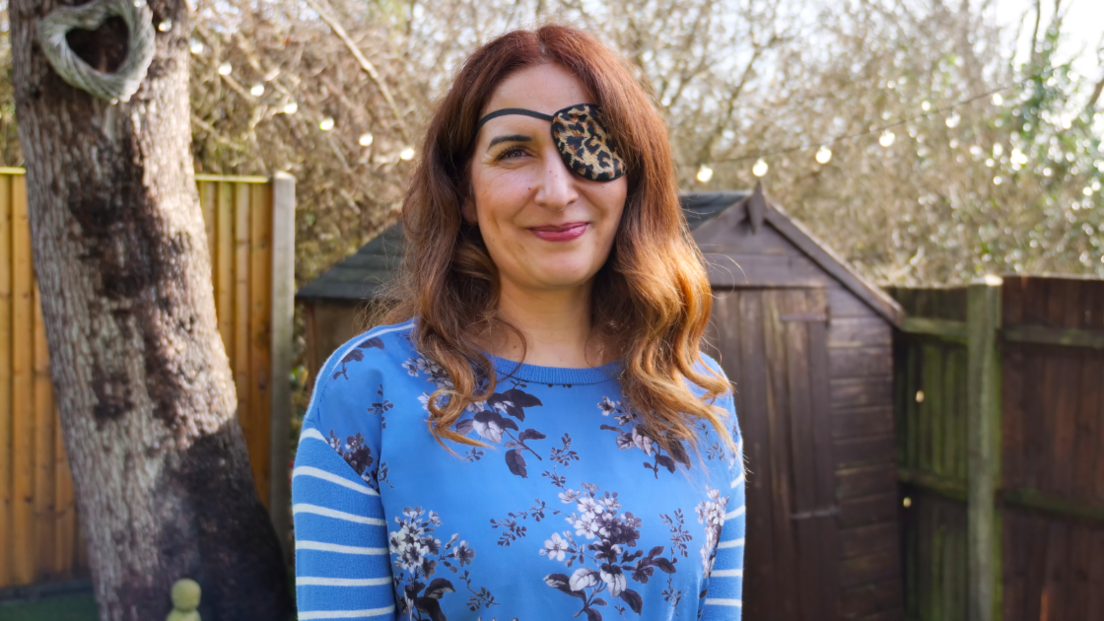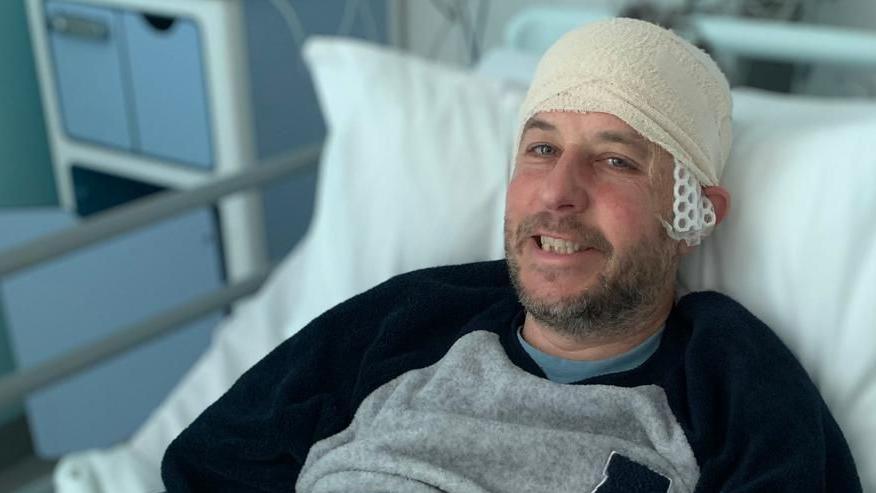Brain tumour research offers 'genuine hope'

Israr Jan-Parker, was diagnosed with a brain tumour in 2022
- Published
A former lecturer who has a brain tumour has welcomed research that could help doctors more accurately forecast how aggressive tumours will be.
In May 2022, Israr Jan-Parker, a former senior lecturer, at the University of Southampton was diagnosed with a petroclival meningioma, the most common brain tumour found in adults.
She is now an advocate for The Brain Tumour Charity, external which part funded the University of Toronto-led study.
"Knowing a test could pinpoint a more aggressive tumour earlier offers genuine hope," Ms Jan-Parker said.
"As someone living with a meningioma that couldn't be fully removed, I am filled with the uncertainty of "when will it grow?," she added.
She said the study's results "mean future patients like myself could receive more tailored, timely treatment instead of an anxious 'watch and wait'".
"This is the progress we are all fighting for," she said.
The research analysed more than 1,200 meningioma samples from Canada, Germany and the USA.
Scientists were able to identify a specific gene mutation which was an indicator the tumour might behave more aggressively
The findings mean doctors can identify patients at risk of faster disease progression.
Dr Simon Newman, Chief Scientific Officer at The Brain Tumour Charity, said: "Despite being the most common primary brain tumour in adults, meningioma research has historically lagged behind other brain tumours. It is vitally important that we fund work like this to find new ways to help those diagnosed live longer, better lives."
Get in touch
Do you have a story BBC Hampshire & Isle of Wight should cover?
You can follow BBC Hampshire & Isle of Wight on Facebook, external, X (Twitter), external, or Instagram, external.
- Published23 September

- Published28 September

- Published10 September
